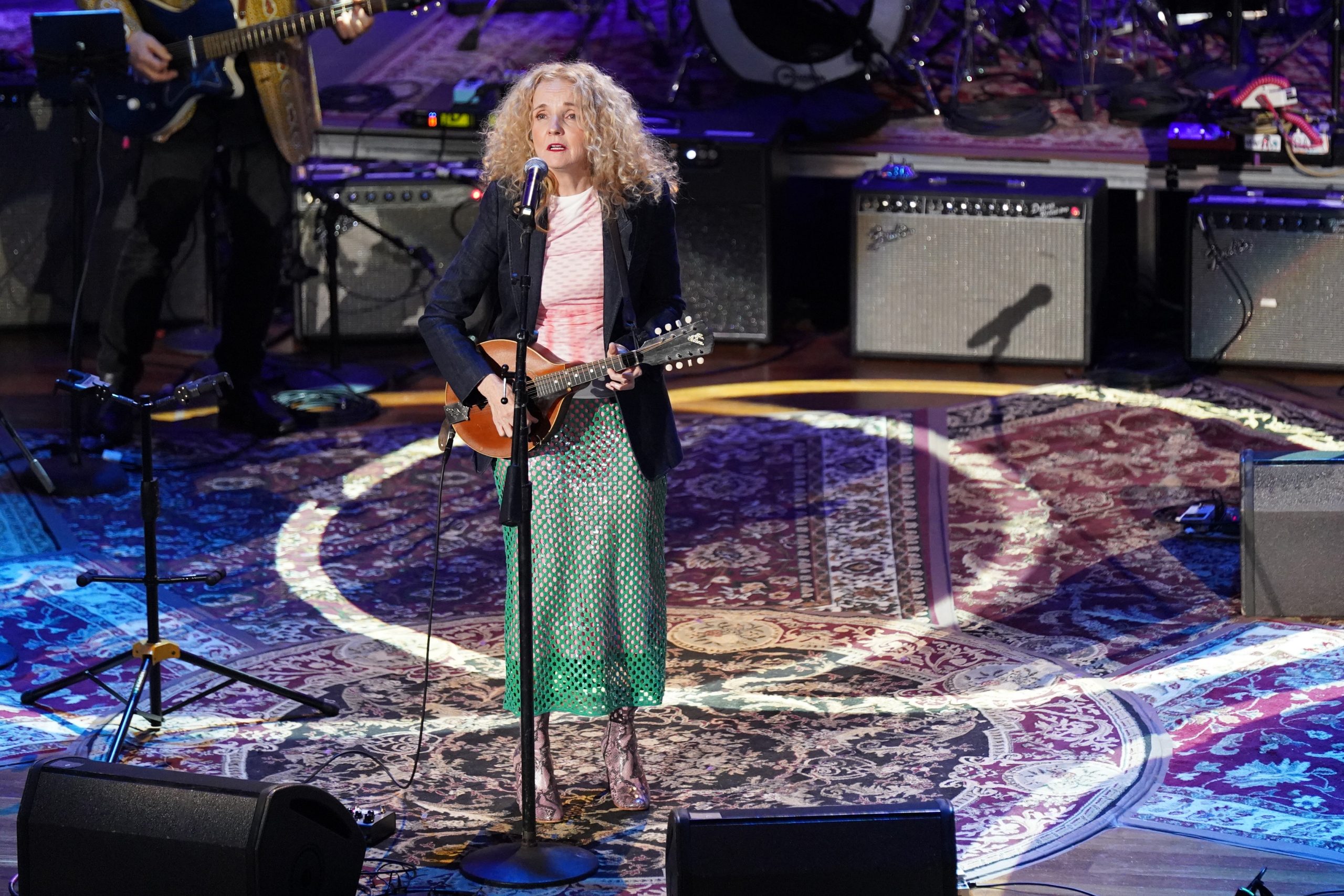From Beating Cancer to Triumphantly Ascending Atop the Music Industry
- Folk singer Patty Griffin, 59, says her second Grammy Award came on the heels of a tough breast cancer battle that caused her to lose her voice because of cancer treatment.
- Griffin was diagnosed with early-stage breast cancer in 2016. She underwent surgery and radiation before reaching remission.
- There are several different treatment options available to women with early-stage breast cancer depending on factors like the stage of the cancer and the biology of the tumor. Treatments include surgery, chemotherapy, radiation, and hormone therapy.
Folk music icon Patty Griffin, 59, says upon winning her second Grammy, the moment meant so much more because it coincided with her beating breast cancer. The “Heavenly Day” singer had returned from a four-year hiatus to focus on cancer treatment, which took a toll on her, including her beloved voice.
Griffin’s career spans over two decades, and she’s racked up two Grammy Awards and several Grammy nominations. Her gospel and folk music sound garnered a wave of support over the years.
Read More
“Early-stage breast cancer means that there’s a small tumor in the breast, that there are no lymph nodes affected,” Dr. Elizabeth Comen, a medical oncologist at Memorial Sloan Kettering Cancer Center, explained to SurvivorNet.
Depending on several factors, including the stage of your cancer, your overall health, if and how much the cancer has spread, and the specific characteristics (biology) of your tumor, your doctor will suggest a treatment option.

For treatment, she underwent surgery and radiation before becoming cancer-free. However, while undergoing treatment, she said she lost her voice.
Around the same time, she started working on a new album. She told Vox Magazine that writing music helped her cope with her diagnosis as she came to grips with her “mortality.”
“I felt like I still needed to write, and I had to figure out ways to write around [treatments]. I just didn’t have my full tool kit, so it’s a more vulnerable place to come from, and it’s actually, ultimately, really good for me to write from that way,” she said to Cowboys and Indians Magazine.
Griffin also started recording music again, which was unsettling because her voice had not fully recovered from cancer treatment.
“My manager said just make a record, just make a record, but I don’t have a voice,” Griffin recalled in a conversation with her manager.

“It was a big struggle to move forward without vocals, but we kept working, hoping I’d sing again. That was hard to make, but I am proud of that one, proud of the work on those songs,” Griffin added.
Her hard work was capped with a stunning second Grammy win in 2020.
Nowadays, she says she does not tour as often as she used to due to the toll it takes on the body.
“I’ve slowed down, changed the way I see touring. Music has a physical intensity to it that doesn’t lessen with time. It’s physical work that’s harder on my body now,” she said.
Helping Patients Cope with a Breast Cancer Diagnosis
Treating Early-stage Breast Cancer
Early-stage breast cancer refers to cancer that is typically smaller in size and confined to the breast and surrounding tissue. Breast cancer at this maturity level has a high chance of a cure.
With added breast cancer awareness and early screening campaigns over the years, more women are having their cancers discovered in early stages.
Screening guidelines recommend that most women start yearly mammograms at 40. If you are at higher risk, given family or personal history, screening may begin sooner. It is important to undergo breast cancer screening when recommended to protect yourself.
RELATED: Early-stage breast cancer and molecular testing.
Treatment options for early-stage breast cancer depend on several factors, as previously mentioned.
For women diagnosed with stage 1 breast cancer, the primary goal for treatment is to remove the cancer, usually with a lumpectomy procedure. During this form of surgery, surgeons work to remove the cancer or abnormal tissue from the breast. A lumpectomy is also called breast-conserving surgery because, unlike mastectomy, only the tumor and some of the surrounding tissue are removed.
RELATED: New Hope for Early-Stage Breast Cancer Patients
After a lumpectomy, radiation may follow. Radiation therapy uses high-energy beams like X-rays aimed at cancer cells to kill them.
“Depending on the size and other features such as family history, a patient may opt for more aggressive surgery. So even for an early stage 1 breast cancer, a woman may elect a mastectomy to remove her whole breast. Then, once that surgery happens, a pathologist can look at that tissue underneath the microscope and decide what treatment a woman needs after the surgery has removed it,” Dr. Comen said.
RELATED: Biomarkers in Early-stage breast cancer
Questions for Your Doctor
If you have been diagnosed with breast cancer, you may have questions about keeping your strength through treatment. Here are a few questions to help you begin the conversation with your doctor:
- What treatment will I be receiving?
- What side effects are associated with this treatment?
- Are there steps I can take daily to help minimize these side effects?
- What physical activity routine do you recommend for me during treatment?
- Do you have recommendations for someone who doesn’t particularly enjoy exercise?
- Can you recommend a dietician who can help me with healthy eating tips and weight maintenance?
- I’ve been having trouble sleeping. Do you have any treatment recommendations?
Learn more about SurvivorNet's rigorous medical review process.

